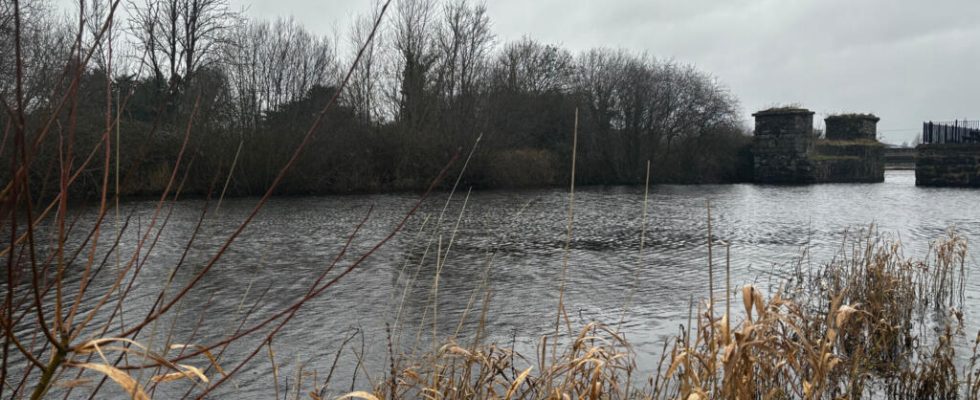Last summer, this lake as large as Malta was transformed into a gigantic green painting, saturated with cyanobacteria. Since then, the inhabitants of the lake have been desperately calling on the political class to act against the proliferation of this toxic algae.
“ At least last year, when the cyanobacteria showed up, as they did, they all listened, finally! You could say it was positive in a way, it brought attention to a problem that has existed for a very, very long time. » In the McErlain family, there have been seven generations of fishing in Lough Neagh. Yet Gary McErlain, with his piercing blue eyes, had never seen anything like it. Lough Neagh, this immense expanse of water – which is equivalent, according to him, to 7 million swimming pools – was suffocated last summer under a thick layer of green algae.
This slimy slime may no longer be visible, but according to Gary, the threat still exists: “ Are cyanobacteria still there? Well you can’t see them at this time of year, it’s January, the water is much colder, the temperatures are low. But are the pollutants still present? Absolutely, there’s no doubt about it. And thank goodness it looks like Stormont Parliament House is going to be restored. This is what we need. We cannot solve these problems without government. This is a natural disaster. Whatever level of government needs to be knocked on to reconsider the issue, I will fight for it! »
The pollution of the lake is in fact not new and has only gotten worse. A consequence of the blocking of the local political system. For two years, the Democratic Unionist Party in Northern Ireland boycotted Parliament: they withdrew from Stormont to oppose post-Brexit trade rules. In the absence of an executive, it was London which then managed current affairs in Northern Ireland. But on Tuesday, the unionists finally accepted an agreement.
A Northern Irish problem
The end of this political paralysis also gives a little hope to Gerry Darby, who is not one to mince his words. Gerry is the director of the Lough Neagh Partnership, a charity, which has been trying to save the lake for years. But according to this big guy, the main responsible for the pollution, it would first be the Good Friday agreement. The historic agreement, signed in 1998, to end thirty years of conflict in the region, between British authorities and pro-reunification paramilitaries with the Republic of Ireland.
“ Lough Neagh was never included in the Good Friday Agreement. It’s as simple as that, explains Gerry Darby. You know, it doesn’t have the same legislation that other large lakes and rivers have throughout the rest of Ireland. There is no legislation on navigation on Lough Neagh, which would facilitate investment, for example, in the same way as there is on the River Bann, Lough Erne or the Southern Rivers. Lough Neagh has been completely neglected… It’s a bit like an ugly baby. » However, last summer, this “ ugly baby » killed swans. He killed dogs. And almost half of the population of Northern Ireland drinks water from this lake every day.
The Lock Keeper’s Cottage, a small restaurant on the banks of the lake. There we find Ciara Laverty, ranger of Lough Neagh, for whom the cause of the crisis is quite obvious: it is the accumulation of nutrients. “ This needs to be looked at as a Northern Irish problem, not just a Lough Neagh problem. she emphasizes. Six main rivers feed the Lough, and this drains almost half of Northern Ireland’s water. As a large agricultural country, some of this comes from runoff from farmland. Other causes of pollution are insufficient water treatment. And there is also a new invasive species in the lake: zebra mussels. They filter the water, but in fact it lets light penetrate deeper, which stimulates the growth of cyanobacteria. Walking along the shore all you can see are zebra mussel shells, it’s quite scary when you see how many there are. »
Una Johnston, 65, has lived near the lake her entire life. She is the one who manages the Lock Keeper’s Cottage today. Because of the smell of gas escaping from the lake, no one ventured into his café anymore. They almost closed. Married to a fisherman from Lough Neagh, she is also afraid for him: “ Fishermen don’t know what this will mean, they don’t know if they will have a fishing season. Nobody knows. » Because even if the fish survive the algae, who will want to consume what comes from such a polluted place?
A report to listen to in its entirety in European accent
